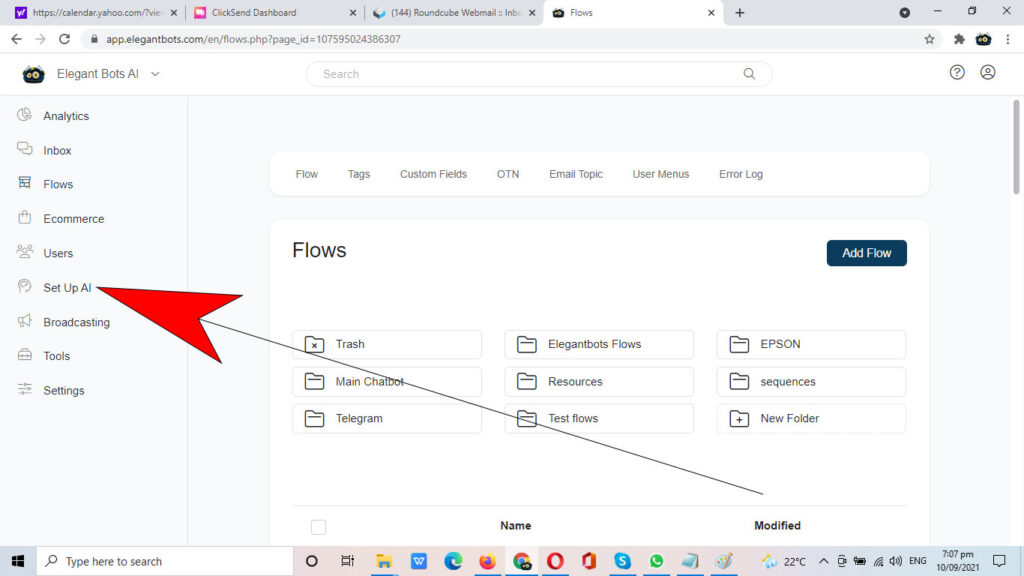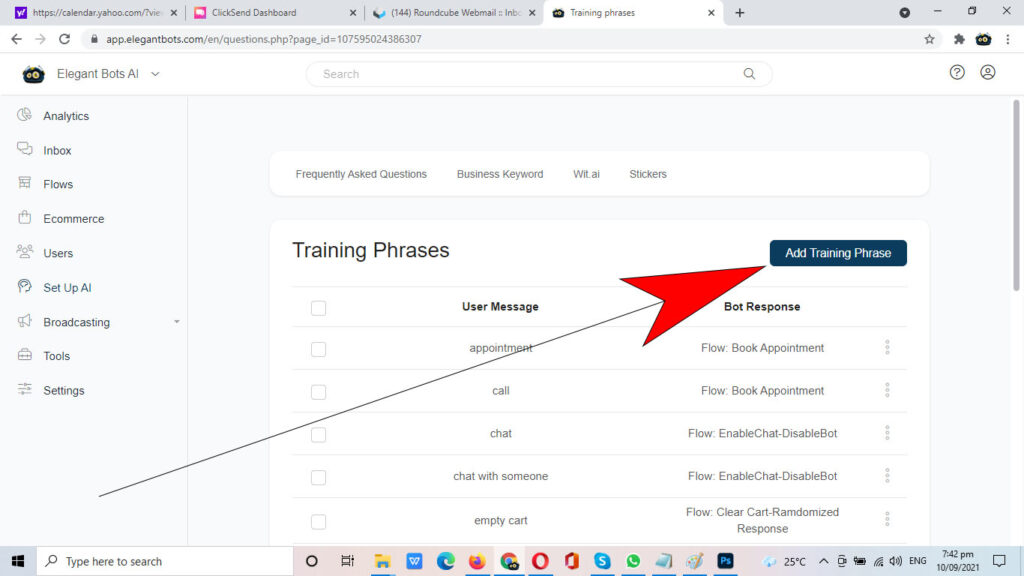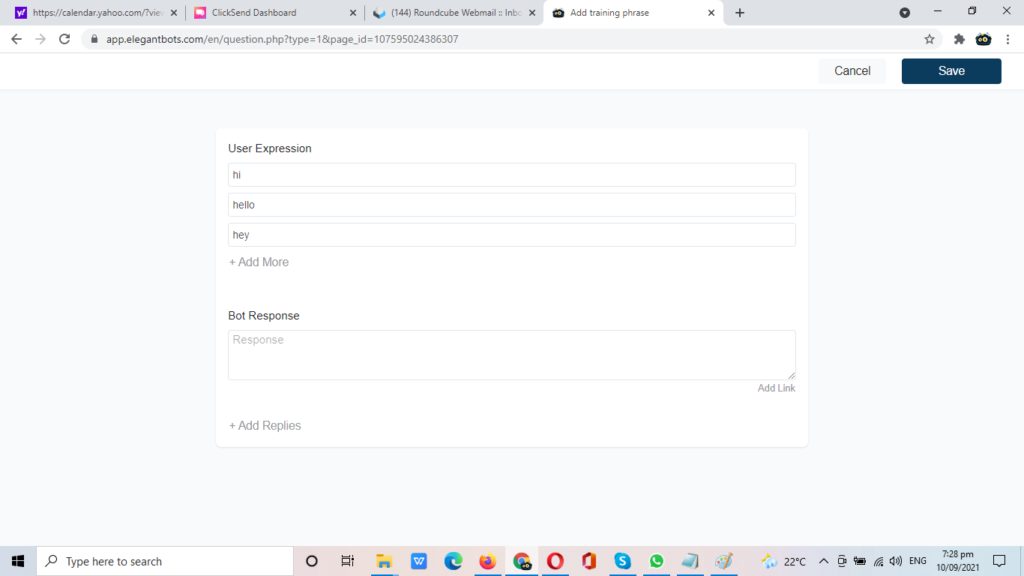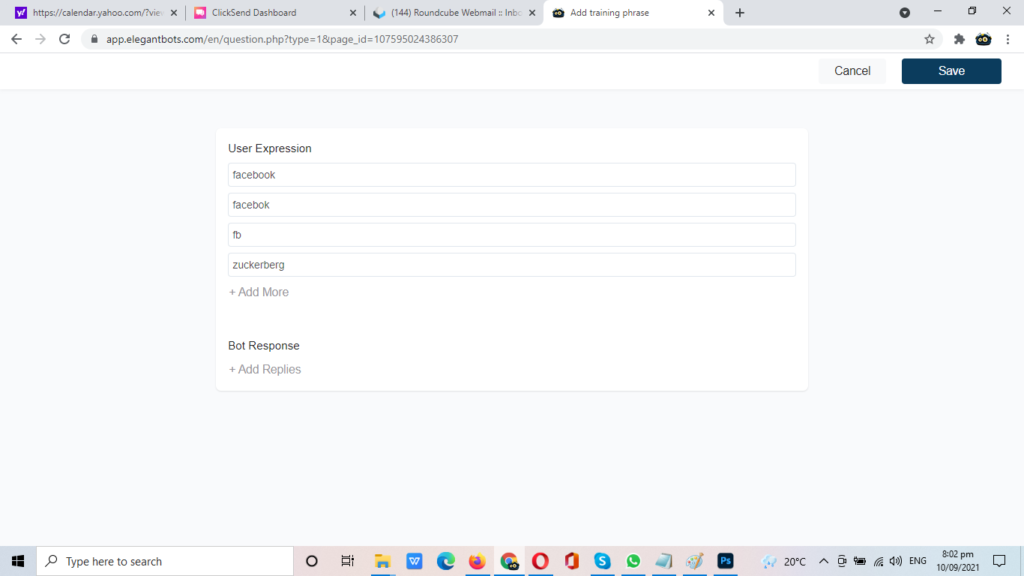All Categories » Tips & Tricks » Setting up Artificial Intelligence
Setting up Artificial Intelligence

The ability to automatically reply to users’ messages is the most fantastic thing about Messenger bots.
Elegant Bots allows you to create Messenger Bots capable of understanding any message related to your business even if your customers writes it wrongly. Big companies usually have hundreds of FAQs. The big challenge is to develop a great chatbot that allows the customers to easily discover any question and answer with 100% confidence even if their customers type wrong.
We built our own AI tool inspired on Google DialogFlow to help you serve any business and even billionaire companies that have thousands of FAQs. But our AI works better than DialogFlow for FAQs and you can train your chatbot 10 times faster than DialogFlow since you only need to provide one version of a question (training phase).
If you are not trying to automate FAQs, Dialogflow will work better. We have a built-in integration with Dialogflow. You can read the docs Here.
Before we get started, it is important to explain the Keyword term. Keywords are words related to your business. For example, for Paypal, keywords could be “money”, “refund”, “payment”, “account”, “transaction”, “card”, “send”, “receive”, “business”, “personal”, “fraud”, … User messages are called training phrases. Traning phrases can contain keywords.
When you train your bot, never worry with lowercase and uppercase since your bot will handle it for you.
Training your bot is a very simple task. Click on “Set Up AI” Menu…

Then click the ‘Add Training Phrase’ button.


Two types of training phrases
1- Non-business Related Training phrases.
The bot will only reply if the user message contains the training phrase. These training phrases normally haven’t any relation to your business and they are very short. Greetings and thank you messages like “good morning”, “good evening”, “hello”, “hi”, “How are you”, “thank you” are good examples.
Examples: if you specify “thank you” as a training phrase, your bot will reply to “thank you Elegant Bots”, ” any text thank you any text”, “thank youu” …
2- Frequently Asked Questions
These are questions related to your business. The bot only replies to user messages if the message is at least 98% similar to the question, otherwise, if the customer’s message includes keywords, the customer will be presented with a list of all questions that contain those keywords. After that, the client chooses the question he wants to ask and he gets the answer.
Whenever you add this type of training phrase, make sure the training phrase contains at least one keyword. Otherwise, identify 1 or more important words contained in the question (training phrase) and add it to the keyword list.
These training phrases often are related to your business.
For example:
What are your opening hours? (keywords: hours).
How much this product cost? (keywords: product, cost)
How to send money? (keywords: send, money)
How to use Google Sheets integration? ( keywords: sheets, integration)
How to make your bot smart with keywords?
You certainly have already searched on Google and despite writing wrong, Google showed the correct result. In this article, you will learn how to teach your bot the most important words related to your business. Your bot will be able to understand any question related to your business, regardless of how users ask the question or if they typed it with an error.
Before going deeper, we will show you a practical example. Imagine a bot, and different users ask questions like:
- How much Facebook earned in 2019?
- How much Facebok earned in 2019?
- How much FB earned in 2019?
- How much Zuckerberg company earned in 2019?
Thanks to the keywords you do not need to enter several variations of the same question. In the above scenario, you would only have to choose the first version of the question, and teach your bot that Facebook, Facebok, FB and Zuckerberg have the same meaning. Below you will learn how to teach your bot that several words have the same meaning.
To add a keyword, go to “Set Up AI > Add Training Phrases.

Keywords make your Frequently Asked Questions of your business easily discovered by your users. For example, if you have a question on your bot.
Who is the president of Facebook?
If the above question does not contain a keyword, the user will have to type (in Messenger) that question exactly as you registered the question. But if you add Facebook as a keyword, if the user asks “president of Facebook?”, “Who is president Facebook”, “CEO of Facebook” the user will discover this question and get the answer.
You can even make your bot smarter by adding variations (synonyms) of the Facebook word like “FB”, “Facebok”, “Facibook”… , if the user asking “Who is the president of Facebok?” or “Who is president of FB” he can also discover the question above and get the answer.
Keywords also work in eCommerce to help your customers find your products more easily. Products names are searchable by default but you can register product name and synonym or wrong spelling to help your customer discover products faster. For example, a restaurant bot can register pizza as a keyword and add piza as a variation. That way if one client type “piza” the bot will understand as pizza and show him a pizza.
As you can note, the variations are normally a synonym or wrong spelling of a keyword. But sometimes you need to use related words to help your customers find the questions.
That’s it…enjoy.